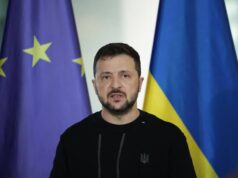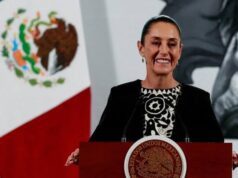China Should Never Try Any Forced Reunification Of Taiwan

China has repeatedly said that it will bring Taiwan under its authority by any means necessary, including force. Analysts believe Chinese leader Xi Jinping aims to achieve that by 2049, the deadline for the country to achieve its “great rejuvenation”. However China must face the reality of an independent country by choice of the citizens of Taiwan.
The growing dream of reunifying the island of Taiwan by military force among Chinese mainland leaders has been shattered by the Democratic Progressive Party (DPP) of Taiwan. This sentiment Of forcefully unifying Taiwan of the Chinese Communist Party is dream gone sour. It has also become the biggest threat to peace not only in Asia but the entire world.
Tsai Ing-wen, who has vowed to protect Taiwan from China, won the presidential election. Now the Taiwan’s president Tsai Ing-wen has called on Communist China to face reality and review its current policy toward the de facto nation that Beijing claims is part of its territory.
Tsai, who has won a landslide victory on Saturday, told reporters: “We hope China can thoroughly understand the opinion and will expressed by Taiwanese people in this election and review their current policies.”
The president’s comments come days after China’s top diplomat said that unification with China was a “historical inevitability” and that anyone who opposed it would “stink for 10,000 years,” an idiom to mean someone will go down in infamy.
Beijing says Taiwan’s unification with China is ‘inevitable’ despite election result
Taiwan was ruled for more than three decades by the nationalist army, the Kuomintang, which fled to the island in 1949 after being defeated by the Chinese communist party and created a rival government, the Republic of China, better known today as Taiwan. It has since transformed into a multi-party democracy, under a government and political system completely separate from China’s.
The election of a candidate who campaigned heavily on promises to not allow Taiwan to become another Hong Kong has been widely seen as a rebuke to China’s efforts to intimidate and persuade Taiwan citizens to support unification.
Under Tsai’s first term, Beijing severed a dialogue mechanism with Taiwan and has sought to isolate it diplomatically. In a show of strength, China sailed its new aircraft carrier through the Taiwan strait twice in the run up to the election.
Tsai opposes unification but has never said that she would formally declare Taiwan’s independence, which would provoke Beijing.
“We don’t have a need to declare ourselves an independent state,” Tsai told the BBC. “We are an independent country already and we call ourselves the Republic of China, Taiwan.”
Tsai said the election served as a “very strong message from the people of Taiwan.”
“They don’t like the idea of being threatened all the time. We are a successful democracy … We deserve respect from China,” she said. “We have a separate identity and we’re a country of our own.”
Beijing has refused to deal directly with Tsai on the grounds that she has not, like her predecessor, accepted the so-called 1992 consensus which says that Taiwan and China are part of “one China”. The vague agreement leaves it up to each side to interpret the definition of “one China”.
Tsai said that before dialogue can be re-opened, Beijing must review its current approach. “If they are not prepared to face reality, then whatever we offer won’t be satisfying to them.”




